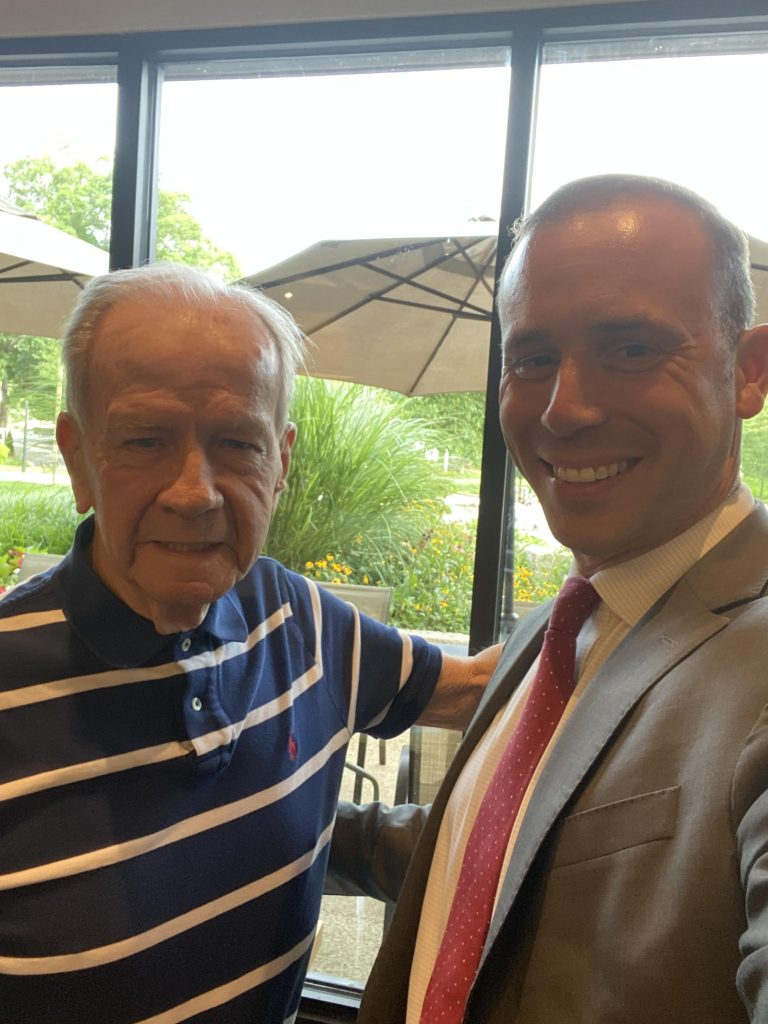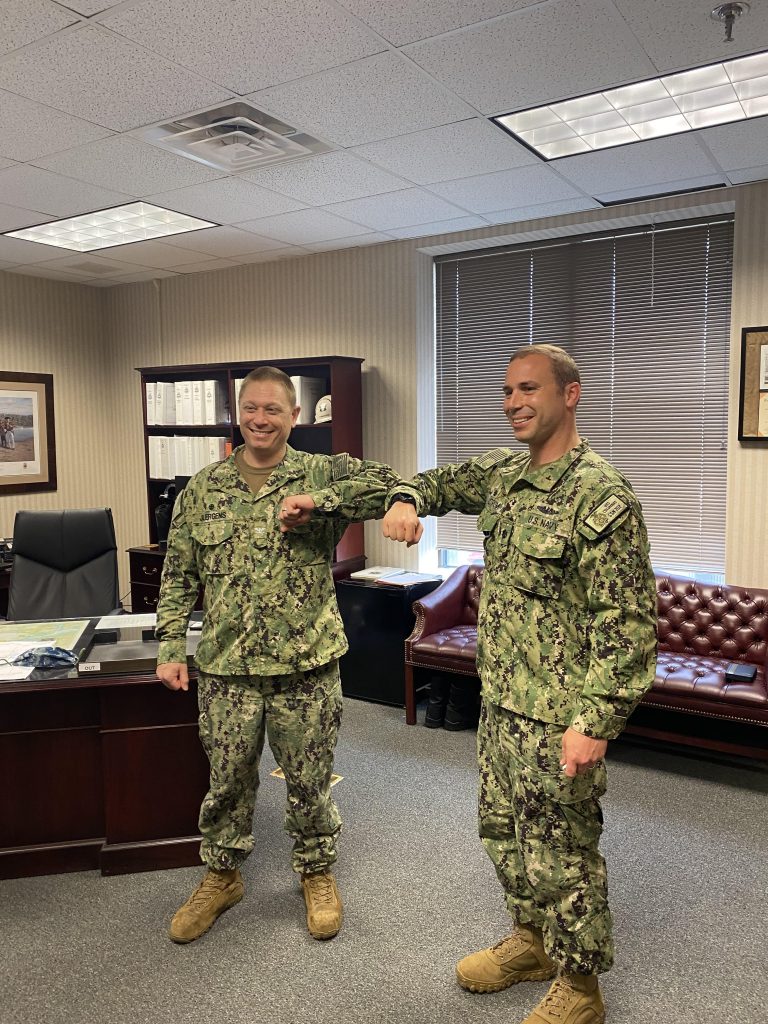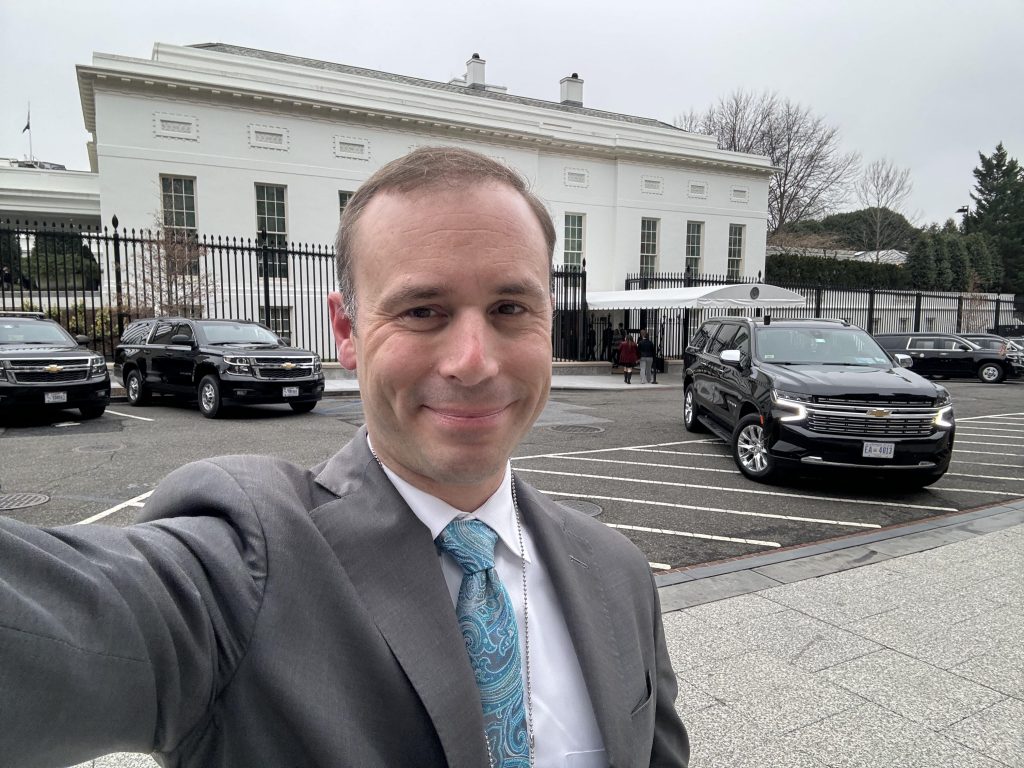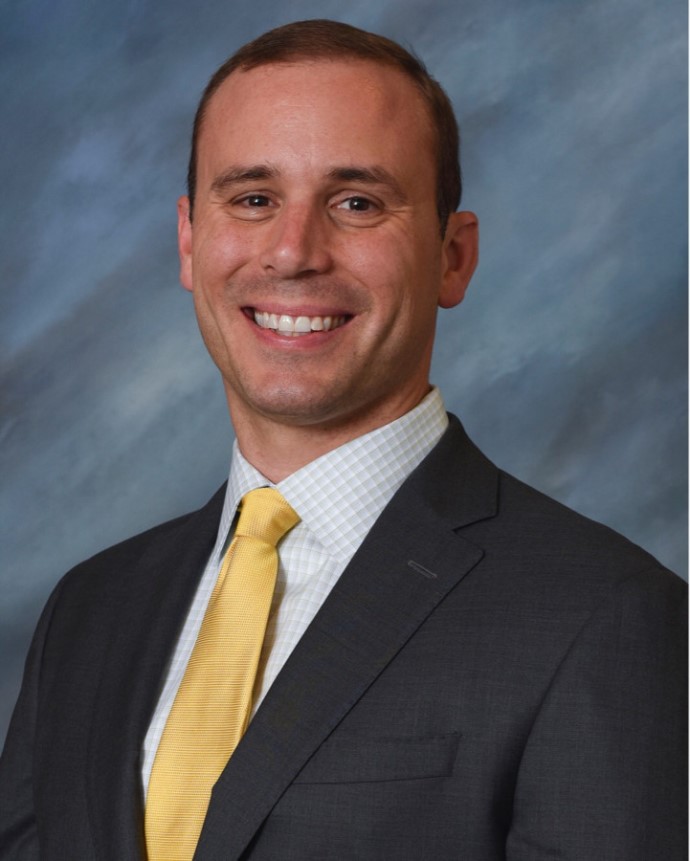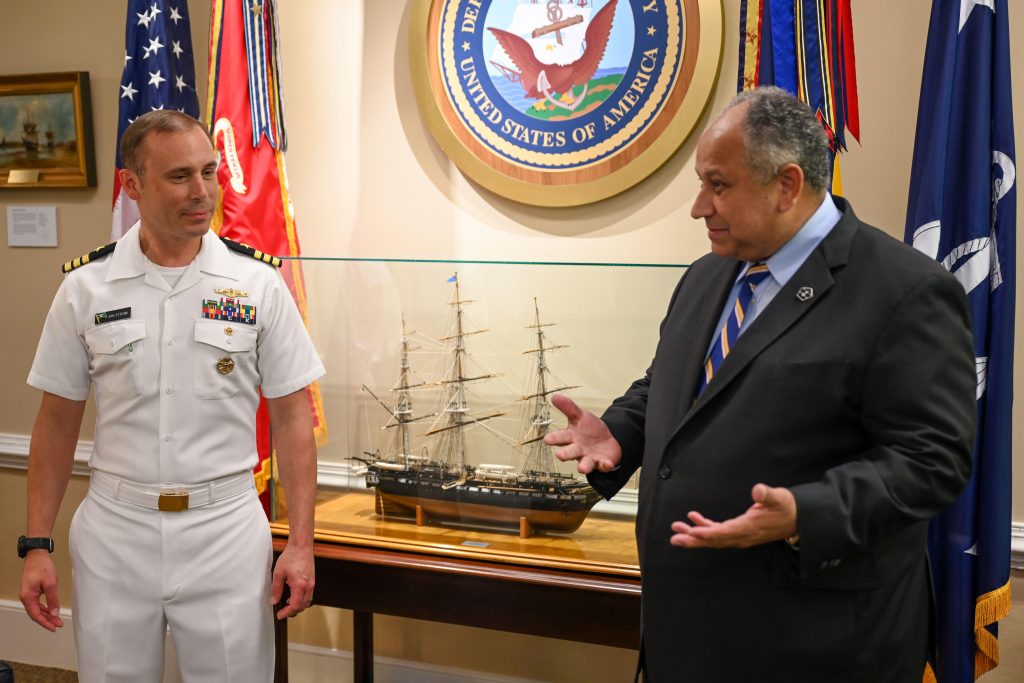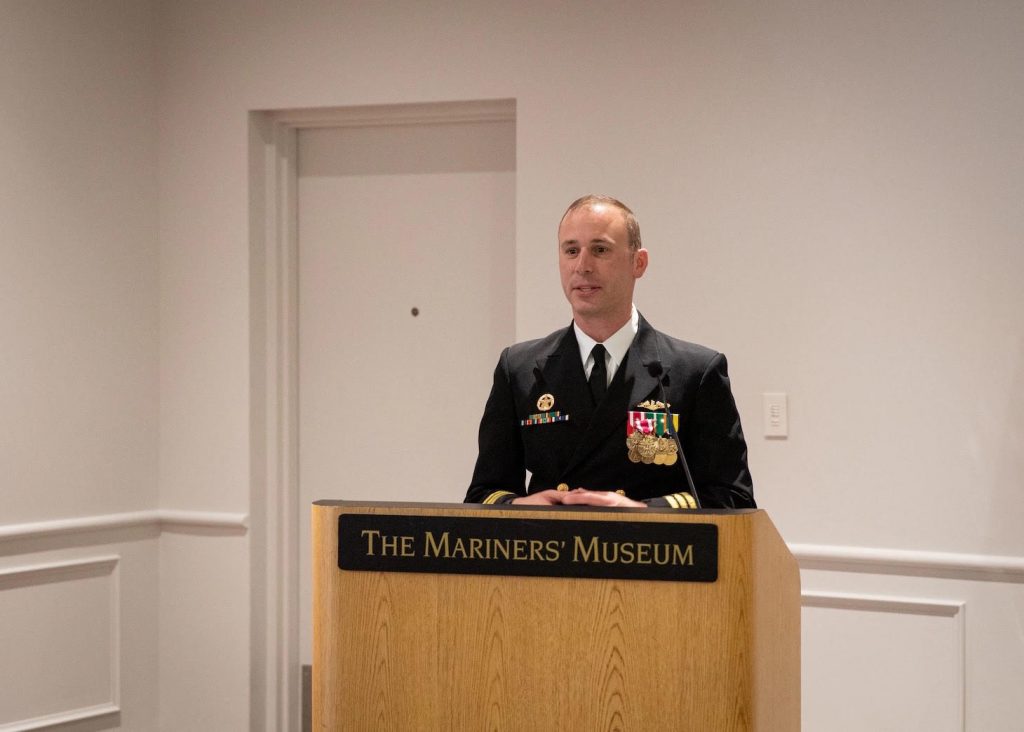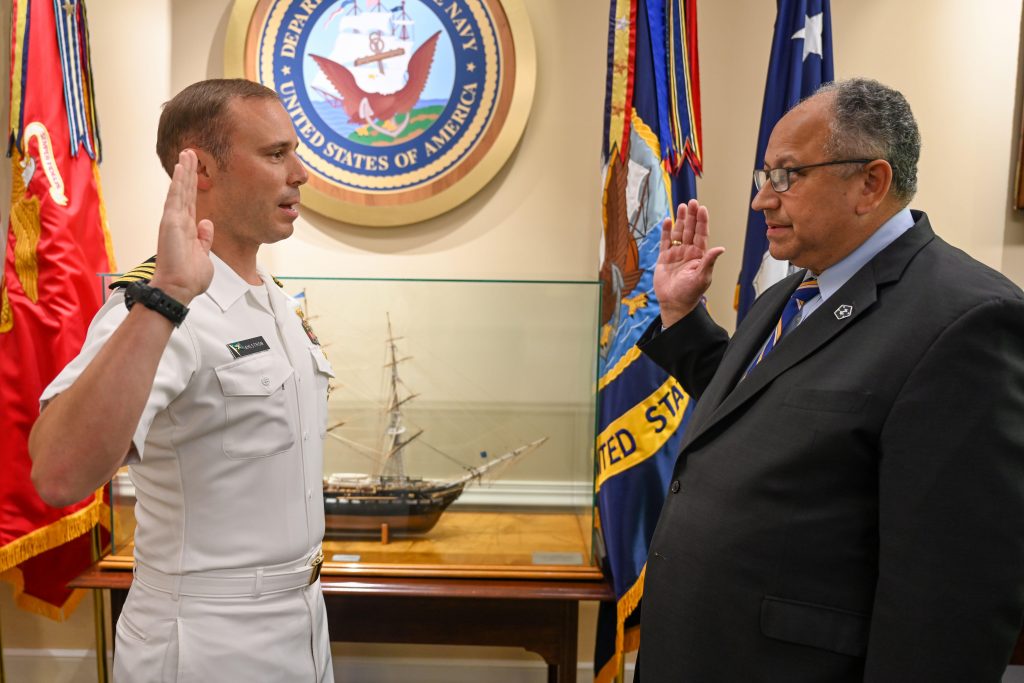WHF Profile: Jon Ahlstrom (2018-19)
Can you tell us about yourself and your work before the White House Fellowship?
Prior to my selection as a White House Fellow I served as a career submarine officer where I was stationed on a mix on fast-attack and ballistic missile submarines. I entered the service with a Systems Engineering degree from the Naval Academy and would later go back to school earning a Masters Degree in Geopolitics from a French political science university.
How did you hear about the White House Fellows Program and what made you decide to apply?
I heard about the program in 2007 while working as a Flag Aide at the Pentagon. A Navy Captain that I worked with in the front office told me he was heading off for a reunion lunch, I asked what kind of reunion and him simply said “it’s with my White House Fellows class.” That moment planted the seed. My reasons for deciding to apply matured over the next ten years, but the starting point was that moment. The Navy Captain referenced continues to be an incredible mentor to me and is an active-duty four-star Admiral.
What goals were you hoping to achieve through the Fellows program?
I went into the Fellows program with two primary objectives. First, having spent my career in the Department of Defense, I had a strong desire to learn how the broader U.S. interagency worked. Second, I wanted to be a part of a diverse and talented cohort of like-minded professionals in an environment where we could learn and grow together.
Where were you placed and what was the focus of your work?
I was placed at the U.S. Agency for International Development (USAID). I was assigned to co-lead a team that worked across USAID and the interagency in developing a strategy for how development functioned in an era of Great Power Competition.
What was your fellowship class like?
I was privileged to be part of an incredible fellowship class – a team of professionals coming from various backgrounds to include the software engineering, law enforcement, medical, and military.
What did you do immediately after the Fellowship?
Immediately following the Fellowship I started a ten-month training pipeline at the end of which I assumed command of a Los Angeles Class nuclear attack submarine.
How did the trajectory of your life and work change after the White House Fellowship?
The White House Fellows program is much more than a leadership development program. A mentor, friend, former National Security Advisor, and former White House Fellow, Bud McFarlane wrote an unsolicited letter to the Secretary of the Navy (also who happened to have been a White House Fellow) advising him that after my command tour he should consider having me help stand-up the new trilateral security partnership between Australia, the United Kingdom, and the United States (AUKUS) that aims to develop a sovereign conventionally-armed nuclear powered submarine program in Australia. A short time later I found myself working on the Secretary of Defense’s immediate staff covering the AUKUS portfolio.
What are you most proud of achieving since the fellowship?
Through a leadership program outreach opportunity during the White House Fellows program, I met a young lady from the Democratic Republic of the Congo studying economics in the U.S. who hoped to return to her country and improve conditions for children in the DRC. I helped her through the process of starting a small Non-Governmental Organization focused on this work. Today as a member of the board, I am pleased to see that NGO begin to make real differences on the ground.
What are you working on now?
I am working on the trilateral security partnership between Australia, the United Kingdom, and the United States (AUKUS). I spent the last 15 months working on AUKUS from various positions in the Department of Defense. Most recently I was asked to come to the National Security Council as the new Director for AUKUS starting at the beginning of April.
It sounds like all of those experiences gave you a set of new skills that you might not have had in your previous role. How did you translate those skills into your career and work now?
One of the reasons I ended up working on such a high-profile security partnership and ultimately ended up working at the White House directly ties to the skills I acquired learning how the interagency works while at USAID as a White House Fellow.
Have you and your classmates remained close since your Fellowship year?
In short yes – the fellowship year is intensive and the level of personal engagement between you and your cohort cannot be maintained coming out of the fellowship. Our class quickly returned to their professional lives which had members living in different countries and around the United States. However, despite the distance I continue to feel a strong connection to our class and we all take advantage of seeing each other when opportunities present.
What advice would you give to prospective applicants?
You will never get to YES unless you apply. The worse they will tell you is NO. It is worth it, even if you don’t get across the line, you will have the opportunity to learn about yourself along the way.
